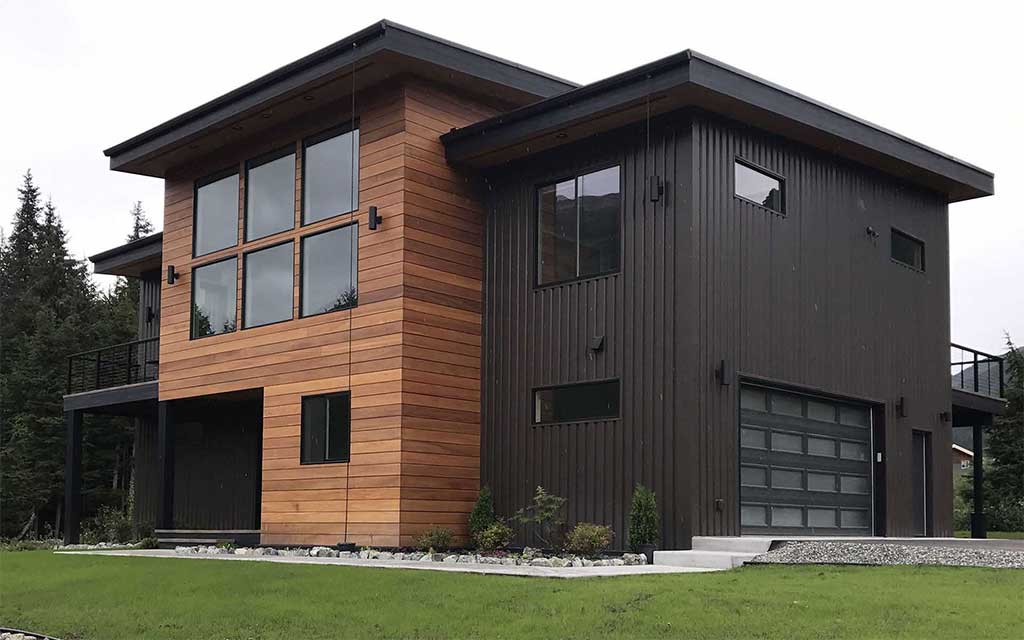
House washing is a great idea but it is important to take your time and do it right. You can do it the best way by investing in the right tools. It can make your home appear new again. It's a great way to spend a few hours each year, and it will save you money on professional house washing services.
A pressure washer is an excellent way to clean exterior siding. But be sure to use the proper nozzle to avoid causing damage to your siding. The wrong nozzle can cause streaks, spotting, or other damage to your siding. You should also be cautious not to apply too much pressure as this can cause vinyl siding to crack.
Natural products are another option for cleaning siding. To get rid mildew, make a vinegar solution. You can even make a paste of baking soda and water to clean your facades.

Also, the old-fashioned way of using a scrubber to apply soap water is effective. This is particularly helpful for tight corners or around windows frames. These tasks can also be accomplished with a chamois.
Another popular cleaning option is bleach, water, soap and rinse-aid. This cleaning solution works well on aluminum, vinyl, as well as painted wood siding. You can use it even on plastic decking. It is important to check the label to determine if the product contains any ammonia. Ammonia can be used by itself and should not be mixed with any other cleaner. This will protect you from any chemical reactions.
For a more natural approach, you can use a mixture of vinegar and baking soda. This will remove mildew from your home and will make it look clean. The vinegar and baking soda mixture can also be used to help keep your exterior siding in tip-top shape. It's a great way to keep your siding free of rust, grime, and mold.
A quality scrub brush is essential for any job, whether you're handwashing or power washing your siding. For best results, you will need a medium soft bristle brush with an extended handle. This type of brush can easily be held in an inclined position. It makes it easier to reach all the corners of your siding.

Start from the bottom to ensure you are getting every nook and crevice out of your siding. This is especially useful if you're working from the bottom up on a second story house. An angled spray nozzle can also help you reach the sides. This makes cleaning more efficient. It will also help you avoid water trapping in cracks.
To get your home ready to face winter, wash it before it gets cold. It is also important to wash your gutters.
FAQ
How long does it usually take to renovate your home?
It all depends on how big the project is and how much time you spend each day. The average homeowner works on the project for three to six hour a week.
How can I avoid being ripped off while renovating my home?
The best way to avoid being ripped off is to know what you are paying for. It is important to carefully read all terms and conditions before signing any contract. Blank contracts should not be signed. Always request a copy of any signed contracts.
Are you better off doing floors or walls?
The best way of starting any project is to determine what you want. It is important that you think about how and who you want to use the space. This will help determine if flooring or wall coverings are best.
If you have decided that you want to create an open plan kitchen/living area then you may choose to install flooring first. Wall coverings are an option if you prefer to keep this space private.
How Much Does it Cost to Renovate a House?
Cost of renovations depends on the material used, how large the job is and how complex it is. Certain materials, such as wood, require special tools like drills and saws. Others like steel don't. The price of renovations depends on whether you hire a contractor to do the job or if you are willing to do the work yourself.
The average cost for home improvements projects is $1,000 to $10,000. The average cost of home improvement projects would be between $5,000 and $25,000. On the other hand, if you decide to do the entire task yourself then the total cost could reach up to $100,000.
There are many factors that influence the final cost of renovations. These include the material used (e.g. They include the type of material used (e.g., brick vs. concrete), the size and number of workers involved, as well as the length of each project. These factors must be taken into consideration when estimating the cost of renovation.
Do I need an architect/builder?
You may find it easier to hire someone else to complete your renovations if you own the home. However, if you are planning to buy a new home, then hiring an architect or builder will help you make sure that you get exactly what you want.
Are you able to live in a renovated house?
Yes, I can live in my house while renovating it.
Can you live in a house while renovations are going on? It depends on the length of the construction. If the renovation takes less time than two months, then no, you can still live in your home during construction. You can't live there if your renovation project takes more than two months.
Because of the possibility of falling objects, you shouldn't live in your home while a major construction project is underway. A lot of heavy machinery is used at the jobsite, which can lead to noise pollution and dust.
This is especially true if your house has multiple stories. This is because the vibrations and sound created by construction workers could cause serious damage to your property.
You'll also need to cope with the inconvenience of living in temporary housing while your house is being renovated. This means that your home won't provide all the amenities you need.
You won't be allowed to use your dryer or washing machine while they are being repaired. You will also have to put up with the smell of paint fumes and other chemicals as well as the loud banging sounds made by the workers.
These factors can cause stress and anxiety in you and your family. So it is important that you plan ahead so you don't feel overwhelmed by all the circumstances.
It is important to research before you start renovating your house. This will help you avoid costly mistakes down the road.
It is also advisable to seek professional assistance from a reputable contractor so that you can ensure that everything goes smoothly.
Statistics
- Most lenders will lend you up to 75% or 80% of the appraised value of your home, but some will go higher. (kiplinger.com)
- It is advisable, however, to have a contingency of 10–20 per cent to allow for the unexpected expenses that can arise when renovating older homes. (realhomes.com)
- On jumbo loans of more than $636,150, you'll be able to borrow up to 80% of the home's completed value. (kiplinger.com)
- The average fixed rate for a home-equity loan was recently 5.27%, and the average variable rate for a HELOC was 5.49%, according to Bankrate.com. (kiplinger.com)
- A final payment of, say, 5% to 10% will be due when the space is livable and usable (your contract probably will say "substantial completion"). (kiplinger.com)
External Links
How To
5 Things You Should Know Before Starting Your House Renovation
-
Do you really want this? If you're planning on embarking on major home improvement projects like renovating your kitchen, bathroom, or building a brand new house, it's certain that you'll need to have some assistance. But if you don't feel confident enough to tackle such a large task alone, then you might want to reconsider doing so. You could lose a lot of time and money and not reap any real benefits. Hire someone who knows the ropes to help you. They'll save your time and make it easy for you to have a wonderful place to call home.
-
How much should I budget? - This one might seem obvious, but spending too much on a renovation project could actually make matters worse. The reason is because you'll probably find yourself having to pay back most of the costs at the end of the day. So if you've got a budget in mind, stick to it! A lack of a budget could mean that you end up spending a fortune and getting nothing in return.
-
Do I prefer to hire professionals or DIY? - There's no right or wrong answer here, but we'd recommend hiring professional tradespeople if you can afford them. They'll give you the best advice possible on how to proceed with your particular project. They'll install your plumbing correctly, provide a warranty, and ensure everything goes according to plan. DIY projects can be frustrating because they require a lot more trial and error. This means that you will have to learn many lessons from the experience. Additionally, you will have to deal all manner of problems that can arise along the way.
-
Can I afford it - Don't underestimate what a renovation will cost. Even if the project seems manageable, it could prove costly and you will need to borrow money. And if you're planning to sell your current property soon after completing the renovations, you'll definitely need to factor in the price of selling it into your calculations.
-
Where do I start? There is no right or wrong place to begin when it comes to starting. But we suggest you choose something that you enjoy working on. That way, you'll be motivated to keep going, and you'll be less likely to procrastinate. Also, try to avoid places that require a lot of maintenance. You shouldn't redecorate your living space if you are constantly cleaning up dirt and dust.